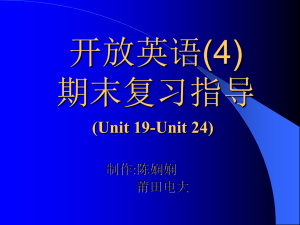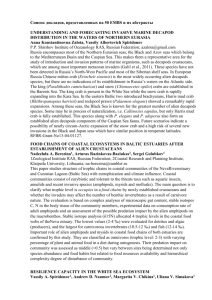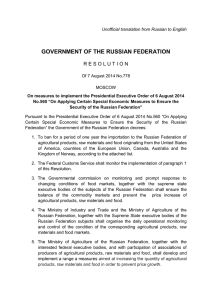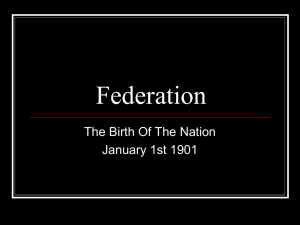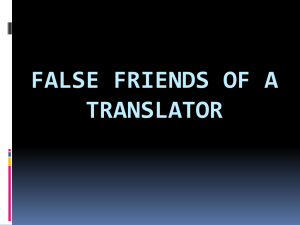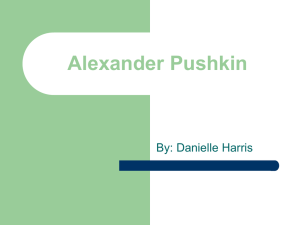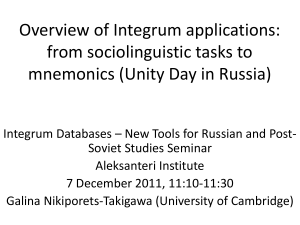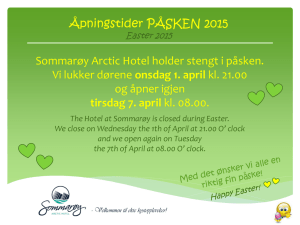Assessment under international law
advertisement
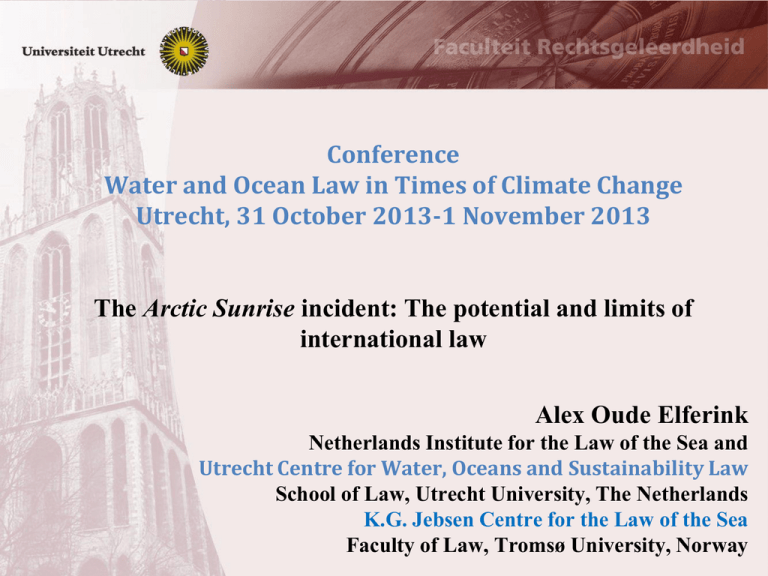
Conference Water and Ocean Law in Times of Climate Change Utrecht, 31 October 2013-1 November 2013 The Arctic Sunrise incident: The potential and limits of international law Alex Oude Elferink Netherlands Institute for the Law of the Sea and Utrecht Centre for Water, Oceans and Sustainability Law School of Law, Utrecht University, The Netherlands K.G. Jebsen Centre for the Law of the Sea Faculty of Law, Tromsø University, Norway Outline presentation • • • • Background Steps taken by the authorities of the Russian Federation Assessment under international law The arbitral procedure started by the Netherlands and the Russian Federation’s response • The interaction between international law and national law • Concluding remarks Background Steps taken by the authorities of the Russian Federation • Protest of Greenpeace concerning Prirazlomnaya using Arctic Sunrise • Boats (RHIBs) of Arctic Sunrise inside safety zone at Prirazlomnaya • Arctic Sunrise subsequently ordered by Coast Guard not to take RHIBs on board. Coast Guard indicates that it intends to board the Arctic Sunrise for inspection, stating that action RHIBs constitutes terrorism and captain ordered to stop (06:28, 18 September 2013) • Coast Guard vessel fires number of warning shots • Attempt to board the Arctic Sunrise at 07:49, 18 September 2013; unsuccessful • Arctic Sunrise later moves further from platform upon request Coast Guard • Arctic Sunrise boarded next day from helicopter outside safety zone but in the exclusive economic zone of the Russian Federation • Crew and vessel detained; crew charged under national law Assessment under international law • Attempted boarding on 18 September 2013 possibly in accordance with international law – Russian Federation has exclusive jurisdiction over Prirazlomnaya – RHIBs at Prirazlomnaya; constructive presence of Arctic Sunrise • Subsequent boarding likely not in accordance with international law – Arctic Sunrise entitled to freedom of navigation – In principle only the Netherlands as flag State entitled to exercise jurisdiction – No longer a situation of hot pursuit starting from safety zone of Prirazlomnaya – No other basis for authorities Russian Federation to visit the Arctic Sunrise or take further measures Arbitral procedure under UNCLOS • UNCLOS provides for unilateral submission of disputes to third party compulsory dispute settlement • Arbitration initiated by the Netherlands on 4 October 2013 – Boarding and other actions Russian Federation breach of obligations in relation to Netherlands (freedom of navigation) – Actions have to cease; assurances of non-repetition – Reparation • Request for provisional measures from ITLOS on 21 October 2013 – Asked among others for release of vessel and crew and suspension of judicial and administrative procedures • Russian Federation does not accept the arbitration procedure and does not intend to participate in proceedings at ITLOS – Based on declaration excluding certain disputes; relevance dubious – Alternative would have been to raise preliminary objectives Interaction between international law and national law • Focus on breach of international law obligations by Russian Federation by Greenpeace and others • May be largely irrelevant for prosecution under national law; illegality of arrest under international law does not act as a bar to prosecution • Dispute may only be submitted to arbitration after exhaustion of local remedies where this is required by international law (UNCLOS, art. 295) – Does not apply to extent that there is a direct breach of obligation owned to the Netherlands Concluding remarks • Case raises critical question about regime of navigation in exclusive economic zone – Prompt release of vessels not envisaged in this case; will it be accorded as a provisional measure? • How will national procedure proceed? • Non-participation of Russian Federation in arbitration and provisional measures proceedings – Does not stop the procedure but can be expected to raise issue of compliance – Negative impact on UNCLOS and its dispute settlement regime? – Does it make a settlement out of court more difficult?
